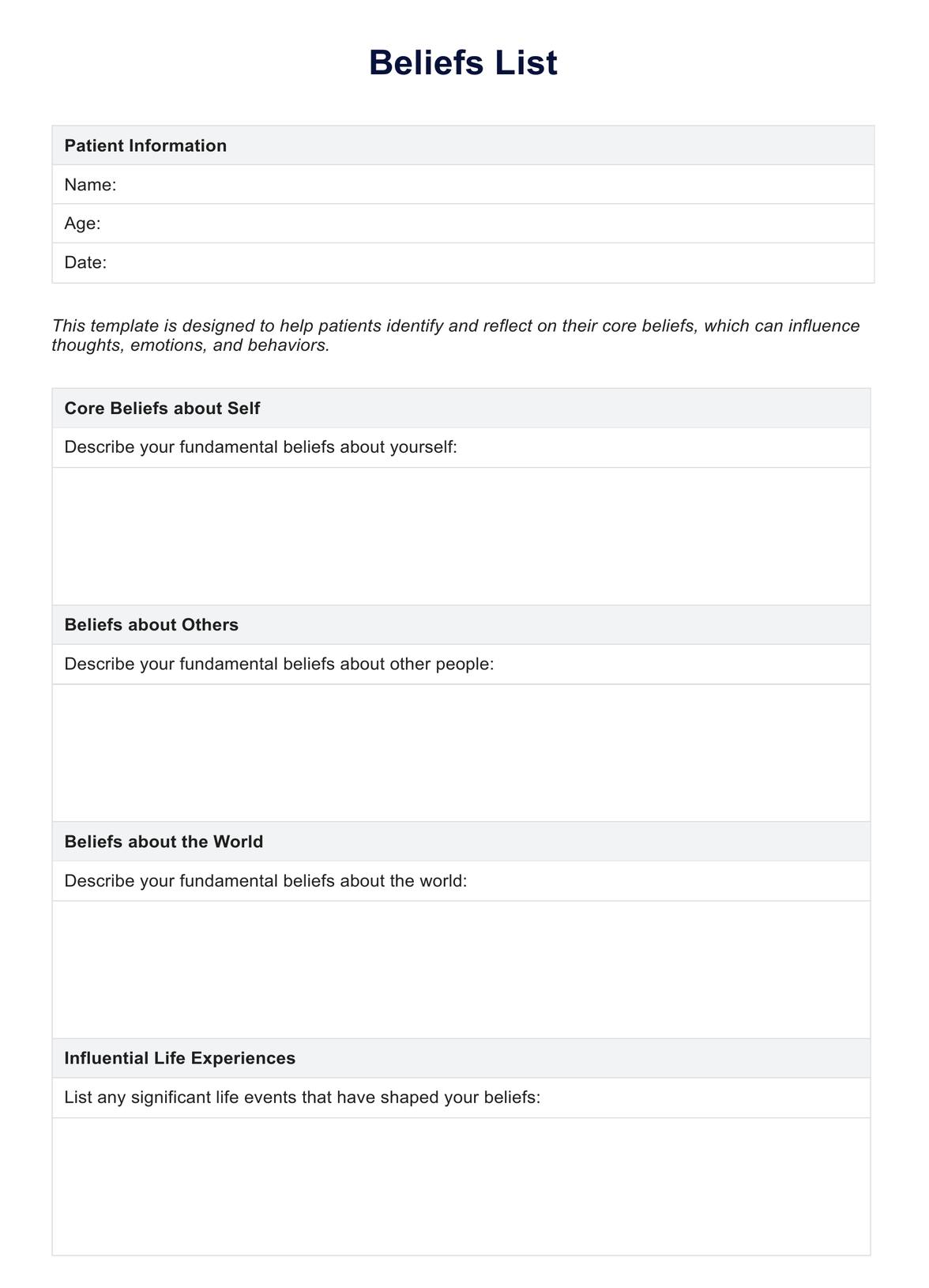Core beliefs are sincerely held perceptions about oneself, others, and the world. They are fundamental convictions that shape an individual’s perspective, affecting their thoughts, feelings, and behaviors.

Explore our comprehensive guide on Core Beliefs, featuring a Beliefs List Template, examples, and strategies for personal growth and mental wellness.
Core beliefs are sincerely held perceptions about oneself, others, and the world. They are fundamental convictions that shape an individual’s perspective, affecting their thoughts, feelings, and behaviors.
Core beliefs are important because they form the foundation for interpreting and interacting with the world. They influence our decision-making, relationships, and emotional well-being, crucial to our overall mental health.
Examples of beliefs include "I am worthy of love and respect," "People are inherently good," or "Success requires hard work." These beliefs can positively or negatively impact an individual's life and interactions.
EHR and practice management software
*No credit card required
Free
$0/usd
Unlimited clients
Telehealth
1GB of storage
Client portal text
Automated billing and online payments